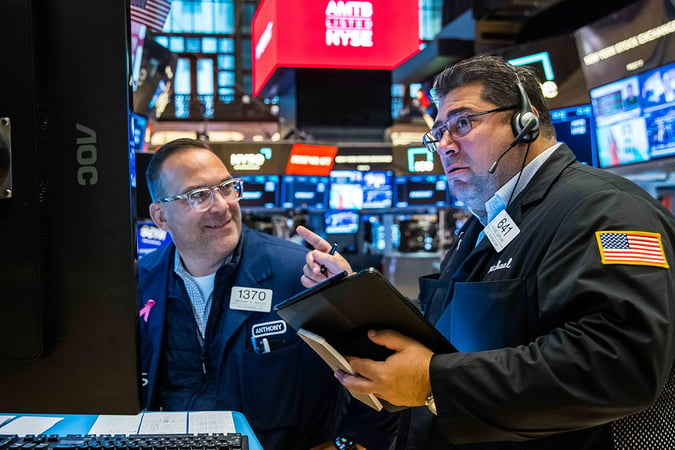The mixed economic data that has emerged is at the root of the uncertainty surrounding the Fed’s monetary policy.
A recent report has revealed that the US Treasury yields are currently on the rise as investors analyze key economic data released the previous week. This surge has prompted investors to contemplate what lies ahead for the nation’s economy.
The Morning Surge in US Treasury Yield
At 4 a.m. Eastern Time, the yield on the benchmark 10-year Treasury note had reportedly risen by more than four basis points to reach 4.2182%. Concurrently, the 2-year Treasury yield had also experienced an uptick, landing at 4.9012% after increasing by more than three basis points.
The movement of Treasury yields can be seen as a reflection of investors’ expectations for the economy’s future. When yields rise, it often signifies an expectation of higher inflation and interest rates in the future. Conversely, falling yields may indicate economic uncertainty and a flight to safety in government bonds.
One of the pivotal data releases that spurred investor interest was the nonfarm payrolls report for August, released on a Friday. It revealed a notable increase in the unemployment rate, which rose to 3.8%. This marked the highest level since February 2022 and represented a substantial uptick from July’s 3.5% figure.
Additionally, average hourly earnings increased by 0.2% on a monthly basis and 4.3% compared to the same period the previous year. However, these statistics were lower than expected.
For investors, these statistics have multifaceted implications. First, the uptick in the unemployment rate may indicate a potential economic slowdown. Such a scenario would align with the Federal Reserve’s objectives, as slowing the economy has been one of its primary policy goals to curb inflationary pressures.
Moreover, the relatively moderate increase in average hourly earnings indicates that wage growth is not growing as quickly as previously predicted. This could be interpreted as an indication that inflationary pressures are beginning to recede. The Federal Reserve has been constantly tracking inflation, and these statistics may signal that the Fed’s efforts to limit it through interest rate hikes are bearing fruit.
Fed’s Monetary Policy Faces Uncertainty Amidst Mixed Economic Data
The mixed economic data that has emerged is at the root of the uncertainty surrounding the Fed’s monetary policy. On the one hand, several indices have shown resilience, implying that the US economy is still on firm ground. However, there are signals of potential economic slowdown, as evidenced by the recent increase in the jobless rate and moderate wage growth.
This mixed data complicates the Federal Reserve’s decision-making process. Policymakers must weigh the need to control inflation against the risk of stifling economic growth. The Central Bank’s dual mandate of maintaining price stability and promoting full employment has become increasingly challenging in this uncertain economic environment.
Adding to the uncertainty are the comments from various Fed officials, including Chairman Jerome Powell. Powell recently suggested that interest rates may still rise further, indicating a willingness to continue the Central Bank’s gradual tightening of monetary policy. These remarks have left investors pondering the potential trajectory of interest rates in the coming months.
Benjamin Godfrey is a blockchain enthusiast and journalist who relishes writing about the real life applications of blockchain technology and innovations to drive general acceptance and worldwide integration of the emerging technology. His desire to educate people about cryptocurrencies inspires his contributions to renowned blockchain media and sites.
Subscribe to our telegram channel.
Join




